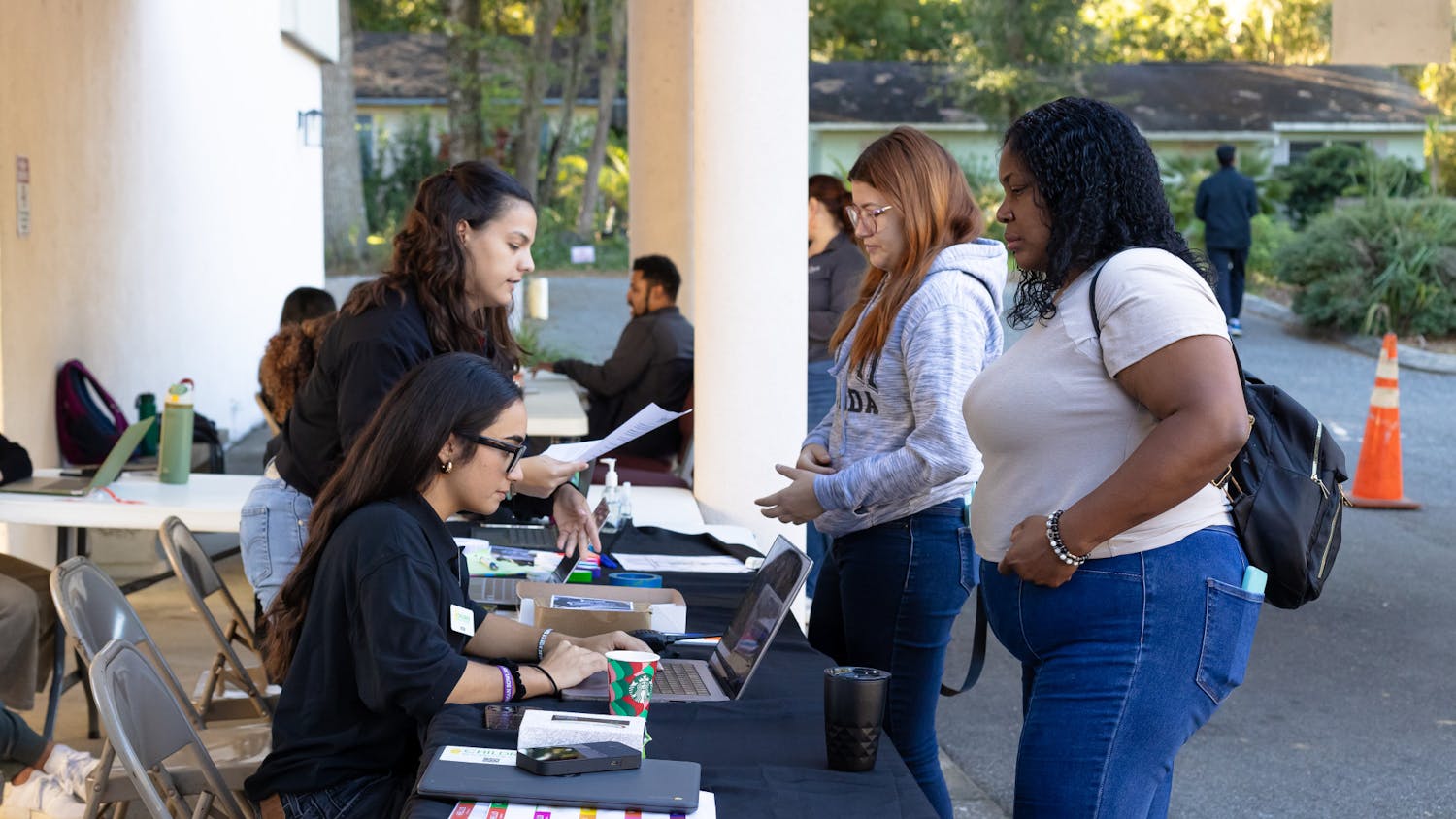More than 70 years ago, a Pulitzer Prize-winning author traveled 100 miles along the St. Johns River and chronicled the journey in a novel named after a rural town outside Gainesville.
Starting Friday, viewers can see a UF graduate student retrace that journey in a documentary playing at the Hippodrome State Theatre.
The film will also be shown on local Public Broadcasting Service, or PBS, stations beginning this month.
Gainesville's PBS station, WUFT, does not have a set airtime for the documentary yet.
Leslie Poole, a history Ph.D. student from Winter Park, stars in the film, and she'll be in Gainesville on April 22 to answer questions about it. Poole plays the role of Marjorie Kinnan Rawlings, the famous writer who sailed down the St. Johns River in 1933.
The one-hour documentary, "In Marjorie's Wake," is based on Rawlings' description of the trip in "Hyacinth Drift," a chapter in her novel "Cross Creek."
Poole, who teaches environmental studies at Rollins College in Winter Park, said her admiration of Rawlings inspired her to take a trip of her own down the river, which runs from Vero Beach to Jacksonville.
After that first trip in 1995, she said she became involved with Equinox Documentaries, a nonprofit production company that makes films about Florida's nature.
She said the documentary has been a work in progress since 2002, and filming was finished in October 2006. Poole said she spent seven days shooting the river portion.
"It was just a week of pure joy," she said.
In addition to the footage of the river, she said the producers also included portions of interviews with travelers they encountered along the way.
Poole said her favorite part of the film is her interview with 96-year-old Dessie Smith, the woman who accompanied Rawlings on the first 1933 trip.
Smith died about six months after the interview.
On the last day of filming at the river, the crew scattered Smith's ashes in the water, Poole said.
Jack Davis, a UF history professor and Poole's dissertation adviser, said the film is "wonderful and poignant."
Davis said he hopes to use the film in his environmental history class.
He said the film could help educate students about the river's historical importance, which he said dates back to the pre-Columbian period. At that time, the St. Johns River served as a gateway for explorers and settlers coming into Florida, according to the St. Johns Riverkeeper Web site.
"It's one of the more attractive features, natural features, of the state," Davis said of the river.
Poole said she hopes viewers will be able to relate to the St. Johns River as part of their history and will be motivated to experience its beauty.
"If not, at least they will understand the importance the river has had in Florida's history and become advocates to protect it," she said.





